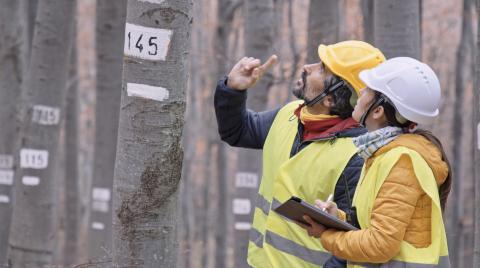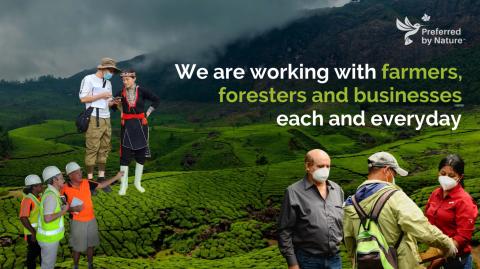Outlook 2012: sustainability trends in the timber market
Will the global financial crisis kill efforts to foster sustainability in the timber sector? This would seem likely, but the opposite seems to be the case.
by CEO of NEPCon Peter Feilberg
The world has seen an ever-increasing focus on corporate responsibility right through the downturn; and sustainable forest management is now firmly on the global agenda.
Investors keen on sustainability
One very clear sign of that is that sustainability is high on the agenda among corporate investors. According to Ernst & Young, 40 % of resolutions submitted for annual shareholder meetings this year centered on social and environmental corporate responsibility. The support level for such resolutions has doubled over the past 6 years, from 10 % to 21 %. This is a very strong trend that began even before the financial crisis and I am convinced that it will keep growing in the coming years. A growing number of global and regional brands see sustainability as a competition parameter, and there are no signs of this losing pace in 2012.
Timber product sourcing and reputational risk management
2011 saw an unprecedented number of leading global companies adopting timber and paper procurement policies.
Examples of companies that made such commitments include McDonald’s; the global leader in container shipping, Maersk Line; and toy producers LEGO and Mattel.
This development is related to the growing recognition of the importance of the world’s forests, for example in carbon sequestration. Increased focus on forests by NGOs and consumers has made forest-friendly sourcing an important factor in reputational risk management.
The EU Timber Regulation will change the timber market
In June 2012, the EU will release detailed information about the requirements of the EU Timber Regulation. From that point onwards, importers and not least their suppliers located outside of the EU will be busy adapting to the new requirements before they enter into force in March 2013. This process is likely to influence the entire timber market and move it in the direction of enhanced focus on both legal and sustainable timber.
A forest-supporting timber trade
An increasing level of commitment to certified forest production and trade could transform the timber sector into a driver of sustainability worldwide. There are intricate linkages between the management of the world’s forests, equitable socio-economic development, wildlife conservation and the well-being of millions of forest-depending people.
Several studies have shown that FSC certification has positive impact on the ground and helps improve forest governance. A new study conducted by the Rainforest Alliance has shown that formally protected areas including UN World Heritage Sites are better protected when the surrounding areas are FSC-certified.
Who drives certification?
As the recent FSC Marketplace Survey has shown, the value of the FSC brand remains strong and the vast majority of FSC certified enterprises are happy with their certificates. The print sector is strongly represented among the certificate holders. The European printing sector is looking towards certification in its efforts to stay afloat in a declining market, and in all likelihood printers will remain a key driver of certification.
However, new business segments that may provide a strong push for certification are also emerging on the scene. The packaging sector may soon challenge the printers’ leading role. As leading organisations increasingly demand certified packaging, that is likely to have a spillover effect on the whole packaging market.
Despite the recession, the construction sector remains a key consumer of timber worldwide, and we are likely to see increased use of certified timber for construction purposes during 2012 in some markets. Many leading builders’ merchants and their suppliers are now certified, so lack of certified supply is often no longer a good excuse for ignoring timber origin in construction projects.
Retailers may also start playing a more significant role through growing demands for certified products. Leading retailers such as Tesco, Wal-Mart, Marks & Spencer, Carrefour and Sainsbury’s are committed to selling and promoting wood products of responsible origin. The engagement by large consumer-facing organisations is crucial in building consumer awareness of eco-labels.
Expanding eco-commitments: cutting carbon emissions
Another trend that I am willing to be on is increased engagement in carbon emissions reduction by the timber and paper sectors.
During a business side meeting held last week in conjunction with the COP17 climate summit, the business case for cutting carbon emissions became crystal clear. I am sure that many FSC or PEFC certificate holders will engage on such commitments during 2012.
These companies are already making serious sustainability efforts, and reducing their carbon footprint is a natural next step. Many of our FSC and PEFC certified clients are already engaging in carbon emission reductions, particularly in the print sector.



